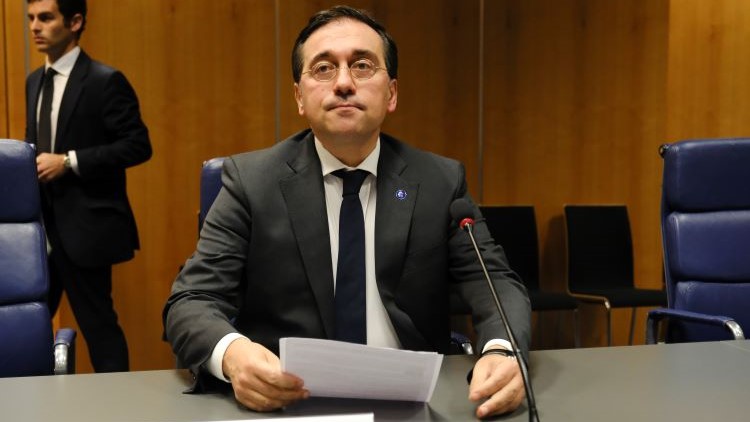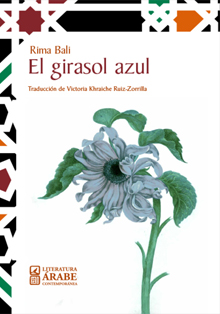Eduardo González
The Minister of Foreign Affairs, José Manuel Albares, will embark on his third tour of the Middle East tomorrow with the aim of promoting a regional de-escalation of the current armed conflict between Israel and Hamas. In this case, the destinations will be two countries especially involved in the crisis due to their proximity to Israel and the Palestinian territories: Jordan and Egypt.
The tour will begin tomorrow and conclude on Thursday. In the absence of a specific agenda, the minister will first travel to Jordan, whose Government, especially King Abdullah II, is especially involved in the search for a solution to the Middle East conflict, which has worsened with the Hamas attacks. against Israel on October 7 and the subsequent large-scale military response by the Government of Benjamin Netanyahu in the Gaza Strip.
In the first week of December, the President of the Government, Pedro Sánchez, and Abdalá II held a telephone conversation in which they renewed their call for “an immediate ceasefire in Gaza”, warned of the deterioration of the humanitarian situation in the Strip and They stressed the need to ensure the uninterrupted delivery of aid.
A week later, the Hashemite Monarch traveled to Madrid, where he was received by King Felipe VI and Pedro Sánchez, before whom he defended an increase in international pressure to stop the Israeli military offensive in the Gaza Strip and thanked “the position of Spain” in favor of a ceasefire and the two-state solution to end the conflict.
That same day, Albares received the Deputy Prime Minister and Minister of Foreign Affairs of Jordan, Ayman Safadi, with whom he addressed the situation in Gaza and before whom he defended a humanitarian ceasefire, the protection of civilians, the arrival of humanitarian aid and the search for “a definitive peace materializing the two-state solution.” Safadi had a new conversation with Albares at the end of October (in this case, by telephone), to ask Spain for a “firm position” after the Israeli attack on Jabalia, in the north of the Gaza Strip, which left “hundreds of victims,” according to Gazan authorities. Jordan has recalled its ambassador to Israel until the offensive in Gaza ends.
The King of Jordan has been very personally committed to finding a solution to the current conflict in the region. Apart from his interview with Pedro Sánchez, Abdalá II has spoken with numerous world leaders, including the president of the United States, Joe Biden; the German chancellor, Olaf Scholz; the Dutch Prime Minister, Mark Rutte; or the Prime Minister of Canada, Justin Trudeau.
Furthermore, Jordan is one of the promoters of the initiative to launch humanitarian aid packages by air to the Gaza Strip in order to circumvent the blockade maintained by Israel by land. To that end, the Spanish Ministry of Defense delivered 110 cargo parachutes to Jordan earlier this month, at the request of Abdullah II.
Albares will arrive in Jordan a few days after announcing new aid of twenty million euros to the United Nations Agency for Palestine Refugees in the Middle East (UNRWA), despite the decision of a group of countries to freeze their contributions after that a dozen agency employees (out of a workforce of 30,000) have been accused of having participated in the Hamas attacks of October 7.
UNRWA is responsible for guaranteeing access to education, health, humanitarian aid and social services to the 5.9 million Palestinian refugees (almost a quarter of the world’s refugee population) hosted in Syria, Lebanon, Jordan and the Occupied Palestinian Territories. (the Gaza Strip and the West Bank). Jordan, a country bordering the West Bank, hosts more than 2.3 million Palestinian refugees.
Egypt
After his visit to Jordan, Albares will travel to Egypt, a country that shares a border with the Gaza Strip through the Rafah crossing and where two of the most relevant moments of Spanish foreign action have occurred since the beginning of the current Middle East conflict, in both cases with Pedro Sánchez as the protagonist.
The first took place on October 20, when the President of the Government attended a Summit in Cairo called by the President of Egypt, Abdel Fatah al Sisi, to try to stop the war in the Gaza Strip. During the meeting – attended by representatives of Arab and European governments, but in which the United States, Israel and Iran were absent – Pedro Sánchez insisted on defending the two-state solution – Israel and Palestine – to solve the conflict in the region.
A month later, Sánchez traveled to Egypt, accompanied by the Prime Minister of Belgium, Alexander de Croo, as part of a regional tour that had included Israel and Palestine. In Cairo, Sánchez declared, after meeting with Abdel Fatah al Sisi, “Spain’s commitment to Egypt in the response to the current crisis” and announced the sending of medical supplies to Egyptian hospitals to care for evacuees from Gaza. Sánchez and De Croo also met with the secretary general of the Arab League, Ahmed Aboul Gheit, at the headquarters of this organization in Cairo.
Subsequently, the two European leaders moved to the Rafah crossing, where Sánchez warned that, if the EU does not recognize the Palestinian State, “Spain will make its own decisions.” Likewise, he asked that the truce that he was in force at that time be maintained to facilitate the entry of aid and the exit of hostages and demanded “a lasting ceasefire” in the Gaza Strip.
These words (as well as those spoken two days earlier by Sánchez before Netanyahu, in which he stated that the number of Palestinian deaths in Gaza was “really unbearable”) made Israel especially uncomfortable, which accused the Prime Minister of “supporting terrorism” and summoned the Spanish ambassador in Tel Aviv, Ana Sálomon. In response, Albares did the same with the Israeli ambassador in Madrid, Rodica Radian-Gordon, to protest “the completely false words” directed against Sánchez.
The other two tours
Tomorrow is Albares’ third tour of the region since the conflict began. The first took place in the last week of January, when he traveled to Lebanon, where he offered Spain’s support to prevent the escalation of violence in the region and defended the “urgent call for an international peace conference” to materialize “the two-state solution”, and to Iraq. During that tour, the minister assured that he intended to soon visit other countries in the region, including Israel, to address the conflict.
The second tour took place in early February and included three Gulf countries, such as Qatar, Saudi Arabia and the United Arab Emirates. During his stay in Qatar, a key country in the current mediation to end the crisis in Gaza, the Prime Minister and Minister of Foreign Affairs, Sheikh Mohamed Bin Abdelrahman Al Zani, expressed his gratitude to Spain for its support to “the regional and international efforts aimed at achieving peace and stability in the region.” Albares was also received by the Secretary General of the Gulf Cooperation Council, Jasem Albudaiwi, with whom he spoke about the situation in Gaza.






